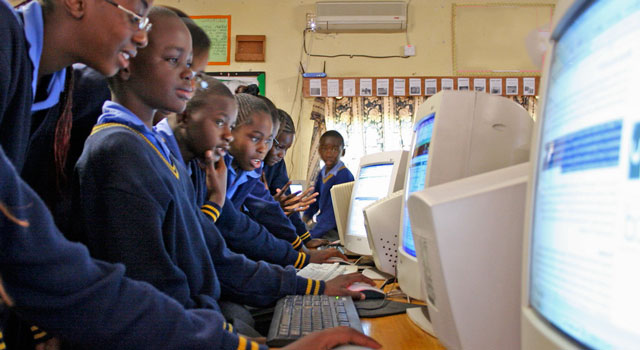 In The Tipping Point, Malcolm Gladwell demonstrated how fines that are set too low create the wrong behaviour. Only if they are set right does the required modification occur. I suspect we have a case of this here in South Africa, with the recent universal service obligations imposed on our leading national telecommunications carriers.
In The Tipping Point, Malcolm Gladwell demonstrated how fines that are set too low create the wrong behaviour. Only if they are set right does the required modification occur. I suspect we have a case of this here in South Africa, with the recent universal service obligations imposed on our leading national telecommunications carriers.
On 4 June, communications regulator Icasa published four general notices amending the universal service obligations of Vodacom, MTN, Cell C and Neotel. Any similar notice for Telkom, or any other service provider, was notable by its absence. The notices recognise that some of the previous obligations have been discharged while others remain in force. Some new obligations have been added, centred on the provision of Internet access to public schools. The notices are effective from 1 April 2014, so are retrospective.
The notices require Vodacom, MTN and Cell C to each implement “full Internet access” to 1 500 public schools and 140 institutions of people with disabilities. The note is vague on whether these 140 institutions are part of the 1 500 public schools – for simplicity’s sake we will assume so. Neotel is compelled to address 750 schools only. To reiterate, so far there are no such obligations on Telkom or Telkom Mobile.
An appendix to the schedule details the standards and specification of what is required at each school. This list is quite extensive and includes:
- Servers for use for proxy service, mail services, Web caching and software distribution. This is to be procured per the Sita 153 contract. For simplicity, we will assume that a single server can do all this using virtualisation. Ideally a backup server would be required.
- A desktop or laptop PC for administration and other functions. This must include a multifunction printer and a lock. The laptop is to be secured per the Sita 285/1 contract.
- A total of 26 laptops, notebooks or tablet computers for learning and teaching. The Sita 284/1 standard applies.
- A further multifunction laser printer.
- An interactive whiteboard (detailed as being optional). These are “big ticket” items.
- A data projector (presumably mandatory). Again, a Sita specification applies.
- A local-area network with Wi-Fi connectivity.
- Software for the above, including an open-source or proprietary operating system, plus antivirus and Web browser.
- Office suite specified as “Word, Excel, Outlook, PowerPoint and Access”, so presumably that means it can’t be open source. Any equivalence is implied but not stated.
- To house the above, a storage and security trolley is needed allowing “ultra-safe recharging for multiple laptops”. This trolley is to be pimped with built-in speakers.
- Oh yes … and remembering that telco service providers are the ones coughing up for this, the Internet connection needs to be a minimum of 1Mbit/s. No data cap or requirement is specified.
So, this all sounds like a good, well-rounded specification, but what is this going to cost? Using some data based on an e-education project BMI-T conducted for a provincial government in 2013, we see the capital cost per school at around R328 500. This is based on prevailing, commercial prices with a reasonable discount assumed. This means that we haven’t cross-checked against the Sita specifications or used the prices in the teacher laptop programme. The latter includes prices at over R12 000 for the “Teacher 101” laptop, albeit complete with software, support and 150MB of mobile data per month.
As for the operating cost, let’s budget for around R1 000 per month per school, with the only prerequisite being the specified minimum 1Mbit/s. For this, based on market prices, you’d get a 20GB Cell C or Vodacom HSPA+ service, or a 200GB 2Mbit/s Web Africa ADSL service (including line rental). Yes, you’ll get some after-hours data for free, so it is plausible to double the gigabytes to get a more realistic view. As they say on the television, other quality services are also available.
The notices don’t appear to have any defined period and probably expect support in perpetuity, but to be pragmatic let’s assume a five-year period for these obligations. The value of the bandwidth alone then would be R60 000/school over the lifetime, so less than 20% of the hardware and software. Remember that the operators are also obliged by the e-rate regulations to provide this at half price, but we will stick with the advertised price as the e-rate is really problematic.
Did anyone mention support or training? I didn’t see this. Do we assume that it’s all part of the deal? For the sake of simplicity, we’ll leave it out of the equation for now but really hope that someone remembers to pick it up. Support, or lack thereof, has proven to be the Achilles heel of the Khanya project in the Western Cape.
But back to the overall calculations. We have 1 500 schools with capital expenditure of R328 500 each plus operational expenditure of R60 000 each, giving a five-year total of a cool R583m. That figure applies to Vodacom, MTN and Cell C, and half that to Neotel. This results in a grand total of a smidgen over R2bn. And this excludes procurement, project management, deployment and any support costs which we can reasonably expect to add another few hundred million to the overall price tag. Spread over three years, this is around 2,5% of the total annual capex bill of these operators. The effect will be much more significant on Cell C and Neotel than on Vodacom and MTN.

Now, if we look back to the notices, we see that Icasa has specified a penalty of R1m (note: to be said in a Dr Evil voice complete with pinkie in the side of the mouth) and another R1m/month until such time as the licensee complies (script: Dr Evil throws back head and laughs wildly). So, if we go back to the five-year plan, that is one “bar” upfront and one a month thereafter, a total of R61m. Throw in some legal fees — another few bar or so — and we’re all-in for, say, R65m. That’s around 11% of doing the project. If we consider the teacher laptop programme rates and support, that figure is even less, perhaps as little as 8%.
Sadly, this move is well intentioned but has this been thought through? Just last week the World Economic Forum, in its Global Information Technology Report 2014, ranked us in 146th place, behind the likes of Haiti, Lesotho, Chad, Zimbabwe, Nigeria, and Kenya. Something needs to be done, and there is a demonstrable correlation between e-education and education outcomes, but is this the right way to go about it? I cannot see our litigation-ready telcos taking this lying down. Icasa, the department of communications and/or the department of telecoms & postal services really need to think this one through. Are there perhaps some other gravy train benefits expected from such a deal? Come to think of this, do the PC suppliers and tablet distributors have universal service obligations enforced on them?
So, back to Gladwell’s The Tipping Point. Are the fines set too low to create the right behaviour? I suspect we have a case of this here, where the telcos will fight, resist or otherwise delay the enforcement of the service obligations, or simply choose to pay the fines rather than take the new obligations lying down. The losers, again, will be the learners and youth of South Africa.
- Tim Parle is senior telecoms consultant at BMI-TechKnowledge




